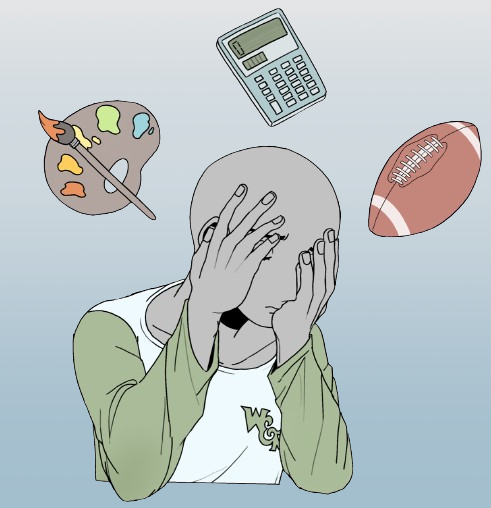Christina Wu ’27 is a prospective government major. She plays the cello and is a member of the Mock Trial team. Contact her at cwu06@wm.edu.
The views expressed in this article are the author’s own.
Think back to the last time you felt obsessed with something. Was it about grades and academics? A sports game? A competition that you needed to win? Now think about what you were feeling at that time. Were you stressed? Overthinking every detail? Planning out the worst possible scenario that the situation could devolve into? I assume that most college students have felt this type of obsession before, and to the extreme level that borders on being unhealthy. However, this phenomenon isn’t best defined by obsession, but rather by validation. It’s the driving force behind most of the anxiety and fear that we experience at each turn of events because it’s often the reason why we act in such extreme ways.
As I sat reflecting on a recent Sunday evening, reeling hard from the loss of an academic competition that weekend, I came to think about validation. This singular feeling has twisted my entire life at times, forcing me to adopt feelings created through irrational thoughts and flawed judgements. Overthinking, insecurity and shame were the most likely products of this negative spiral, leaving me questioning what was even real and what wasn’t. Was my performance that weekend really as terrible as I remembered, or had my perception simply been warped from constantly holding everything up to a mold of perfection? Did I, myself, truly think badly of my performance, or did I simply adopt this mindset after I misinterpreted the expressions and words of others, causing me to overthink my actions? Why had this arbitrary activity even elicited such a powerful reaction from me, given that it had no tangible effect on my life as a student, or even just as a regular human?
Coming to the College of William and Mary has allowed me to see the extent and severity of how much our student community constantly seeks validation. Even after just one semester here, I quickly learned that self-imposed pressure was a humming undercurrent in almost every student’s life in some way. Learning about the concept of the “twamp” was a silly joke to me at first, but when I found myself staying at Earl Gregg Swem Library later into the night, spending less and less time with friends and pushing myself to the limit to satisfy the urge to always be occupied, I realized that I’d become the very butt of the joke. It was disheartening, but even then, I felt a sort of twisted pride in knowing that I’d at least upheld a “productive” stereotype, if nothing else.
This brings me to discussing the question of “why?” It’s normal to feel anxious about something. In fact, it’s a good thing, because it signals that you truly care about whatever you’re stressed about. The issue is why we obsess about performing our best in all aspects, and why perfection is the standard instead of just trying your hardest? I find that comparison is the culprit for unrealistic expectations and should undoubtedly be avoided.
As we continue finding our place in this community, it’s important to remember that there are always people supporting us. Whether it’s your friends, your family, a mentor or even just a classmate, there will always be people who will receive you with open arms no matter what you have done. Some will be upfront about their support in casual, open ways, but there are others silently rooting for you in the background, as well — some of whom you may not even know about. No mistake is too large to be forgiven, and no failure is too severe to overcome.
Seeking validation shouldn’t come from achieving the arbitrary and varying standards of success defined by other people. You shouldn’t aim for an “A” on an exam because your friends got one and you would be embarrassed to tell them otherwise. Nor should you overwork yourself for an activity just so you can hear others tell you that they’re proud of you. Instead, try seeking introspective reflection as to your own true values. What is important to you, personally? Everyone hails from different backgrounds and has a unique story, so think about what you genuinely want for yourself in the future. Finding pure self-validation requires casting off the shadow of expectations of outsiders, and with this process of unlearning comes healing and growth. Ease off of the pressure and remember to relax.

